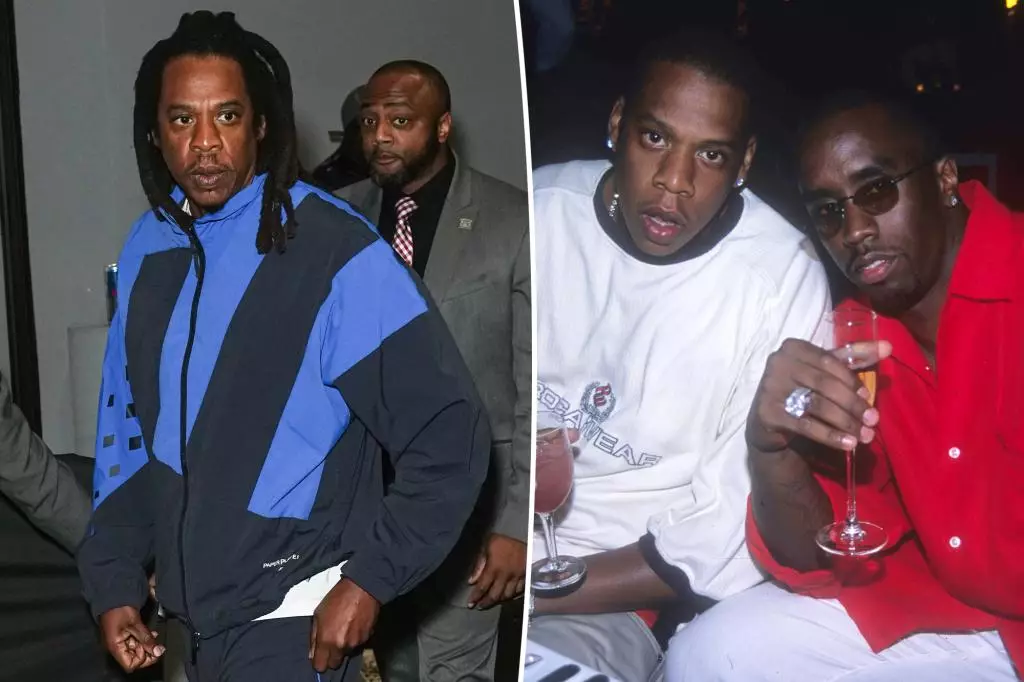In a case underscoring the complexities of celebrity culture, a New York judge has allowed a rape accuser, identified as “Jane Doe,” to pursue legal action against music icons Jay-Z and Sean “Diddy” Combs while maintaining her anonymity. This lawsuit, which has ties to events from over two decades ago, brings forward numerous critical themes, including the balance of justice, the weight of public perception, the challenges victims face, and the ongoing discussion surrounding celebrity accountability.
The ruling issued by Judge Analisa Torres allows the plaintiff to remain anonymous at this early stage of the litigation, underscoring her vulnerability to the ramifications of public disclosure. This decision is pivotal, as it sheds light on the often-overlooked struggles victims endure when coming forward. Jane Doe’s allegations involve a traumatic encounter at the 2000 MTV Video Music Awards afterparty, where she claims both Jay-Z and Combs assaulted her when she was only 13. The details of the accusations are chilling, involving manipulation through substance and the violation of agency — factors that add gravity to the legal proceedings.
Judge Torres articulated her reasoning in a comprehensive manner, emphasizing that the court’s discretion allows for such measures when considering both the psychological impact on the plaintiff and the broader implications of public trial. The judge noted that flowing from the potential harms of disclosure, Jane Doe continues to grapple with significant mental health issues, including depression and post-traumatic stress disorder. By allowing her to maintain her anonymity, the court aims to ensure that her healing process remains uncompromised, a consideration paramount to supporting victims of sexual violence.
Justice Torres did not shy away from admonishing the defendants and their legal representatives, specifically addressing the combative motions backed by inflammatory language. In her view, such tactics are not only inappropriate but may ultimately hinder the judicial process. This insight into judicial strategy adds an additional layer of complexity; legal maneuverings employed by defense teams can often shift the focus away from the victims and the core issues at hand, distracting from the gravity of the allegations.
In response to the amended complaint that also includes Jay-Z, both defendants have reacted vigorously. The Roc Nation founder dubbed the accusations “heinous,” a term echoing across social and legal platforms, adding fuel to an already heated discourse. The insistence on public disclosure of Jane Doe’s identity reflects a broader resistance often exhibited by powerful defendants in high-profile cases. Such a demand showcases an inherent tension between the right to a fair trial and the victim’s right to privacy — a conflict that resonates deeply within contemporary discussions of sexual violence.
The dynamic becomes even more nuanced considering Sean “Diddy” Combs’s current legal troubles involving broader allegations of sex trafficking and racketeering. His legal team has emphasized that the numerous lawsuits against him are publicity stunts aimed at extracting settlements from celebrities, capturing the intricate interactions between celebrity status, media narratives, and public perception of justice. Combs’s legal battles are a reminder of the systemic nature of issues surrounding sexual misconduct, with the potential for backlash that could extend beyond the courtroom into societal judgment.
The ongoing case raises serious questions about accountability among influential figures. The juxtaposition of the realities faced by victims against the backdrop of celebrity privilege serves to highlight the systemic inequalities that pervade legal systems worldwide. The tendency for powerful individuals to utilize their resources in combating accusations can deter potential victims from coming forward, perpetuating a culture of silence and shame.
Moreover, the significant media attention surrounding this case serves as both a blessing and a curse. On one hand, it empowers victims to share their stories, but on the other, it risks sensationalizing individual narratives. This case stands as a critical focal point for ongoing discussions about reform in how sexual assault cases are handled, from both legal and social perspectives.
Ultimately, the court’s rulings and the public response will significantly impact how similar cases are perceived and dealt with in the future. As society continues to grapple with these challenging issues, the importance of compassionate legal processes and informed public discourse becomes ever more vital. Above all, this case illustrates the intersectionality of celebrity status, victimhood, and the quest for justice in a world often skewed against those who have been wronged.

